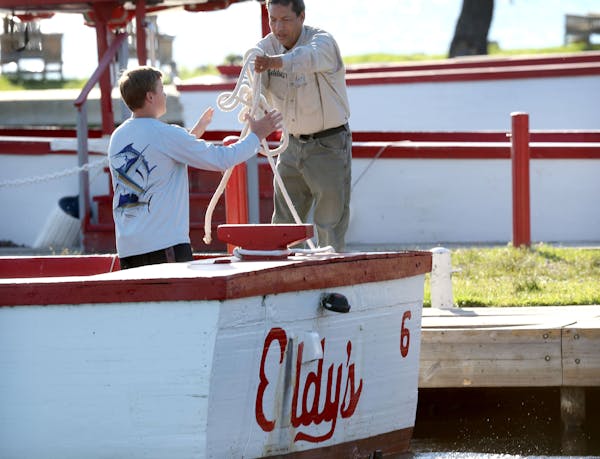High on the Department of Natural Resources should-do list is repairing relations with Mille Lacs area business owners, launch operators and anglers who fish the lake.
This might be more difficult than restoring Mille Lacs walleyes to historical levels.
Three items the DNR might consider:
Eliminating the mumbo-jumbo. If Gov. Mark Dayton says at a meeting at Mille Lacs that a new DNR "team'' is needed to manage the lake's walleyes, Commissioner Tom Landwehr should be able to come up with something more concrete than "for the short term, we're looking at reallocating" time of a fisheries manager (managers?) and "bringing back a retired research biologist … and put all of his time into just Mille Lacs," as Landwehr said during a media briefing Sunday.
Calling a spade a spade regarding Mille Lacs fishing techniques. As the DNR reiterated Monday when it finalized closure of the lake to walleye fishing until Dec. 1, launch operators and other anglers on the big lake can continue fishing for smallmouth bass, perch and northern pike (and muskies) from now until Dec. 1, so long as they don't intentionally target walleyes. But everyone worth his or her tackle box knows that slip-bobber and sliding-sinker rigging with live bait are the primary fishing methods on Mille Lacs. As long as these methods continue unrestricted, and they will, hooking mortality will continue at relatively high rates. Curbing or even modifying these methods might not be feasible politically, because Mille Lacs launch operators are barely staying in business now. But the agency could jump-start a conversation about possible alternatives by seeking suggestions from, and experimentation among, anglers, and by producing a video and other media for local distribution and the DNR website. The effort would achieve a companion goal of mollifying criticism among bass advocates that the DNR is sacrificing their fish to the walleye crowd.
Broadcasting the DNR-Chippewa Mille Lacs technical and management meetings. The DNR has long said its agreement with the eight bands of Chippewa who co-manage the Mille Lacs fishery forbid attendance at these meetings by citizen-onlookers. The fear, spoken or unspoken, is that the meetings might be disrupted by observers who disagree with data presented or agreements made. Depending on what actually occurs at the meetings, that concern might be warranted. Or not. But until Mille Lacs anglers and business owners can view for themselves what is said and done at these until-now closed gatherings, suspicion will rule that the DNR is being outnegotiated. Easy solution: Broadcast the meetings online.
Dennis Anderson • danderson@startribune.com

Wolves' shut-down defense frustrates Suns in first-round playoff series
Liverpool's Premier League title hopes hit by 2-0 loss to Everton. Man United survives another scare

Live: Twins, White Sox back in action; follow on Gameview
Wolves' Reid wins NBA's Sixth Man of the Year award

